
Author: Natalie Ng|Updated: 21 May 2025
Trying to lose weight? Milk might be a simple way to help. Each cup gives you around 8 grams of protein to support muscle while keeping calories low, usually between 80 to 90. It’s also packed with calcium, which can help your body burn fat and stay full longer. Whether it’s low fat milk, skim milk, soy milk, almond milk, oat milk, or even coconut milk, there’s a type of milk for everyone. Milk is affordable, easy to use in smoothies or recipes, and gives you hydration, better sleep, and post-workout recovery support all in one. Studies show that milk and dairy products can be a part of a healthy diet for weight loss. They can help improve body composition, reduce body fat, and support weight management without causing weight gain. Keep reading to see how adding milk to your daily routine can make a real difference in your weight loss journey.

Milk provides high-quality protein for muscle preservation
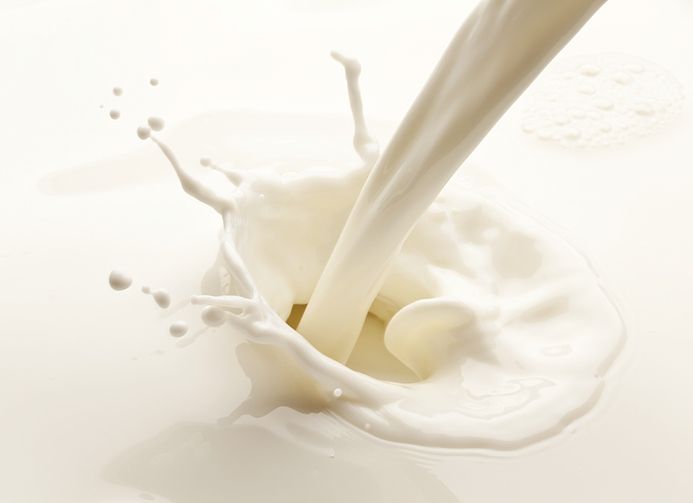
Importance of protein in milk for muscle support
When you reduce calories to lose weight, your body needs enough protein to protect muscle. Without it, you risk losing muscle along with fat. Milk is a reliable source of protein that helps support lean muscle while you lose weight.
Each cup of milk gives you around 8 grams of protein, including all nine essential amino acids that your body cannot make on its own. These amino acids help repair muscle and keep it strong. By including milk in your diet, you give your body the tools it needs to hold onto lean muscle as you lower body fat.
Impact of milk protein on body composition
Protein in milk is especially helpful for weight management. Research, including randomized controlled trials and meta analysis of randomized studies, shows that dairy products like milk, low fat milk, and skim milk can support fat loss without increasing body weight or body mass index. This means milk consumption can improve body composition by helping you lose fat while keeping muscle.
Easy ways to add milk to your diet
You can drink milk with meals, blend it into a smoothie, or use it in cooking. Low fat dairy products like milk, yogurt, and cheese give you protein and essential amino acids without excess calories. If you prefer plant-based options, fortified soy milk, almond milk, oat milk, and even rice milk offer alternatives, though their protein content varies.
Milk and dairy products are an easy way to include high-quality protein in your daily meals and support your weight loss goals while protecting your muscle.

Calcium Supports Fat Metabolism
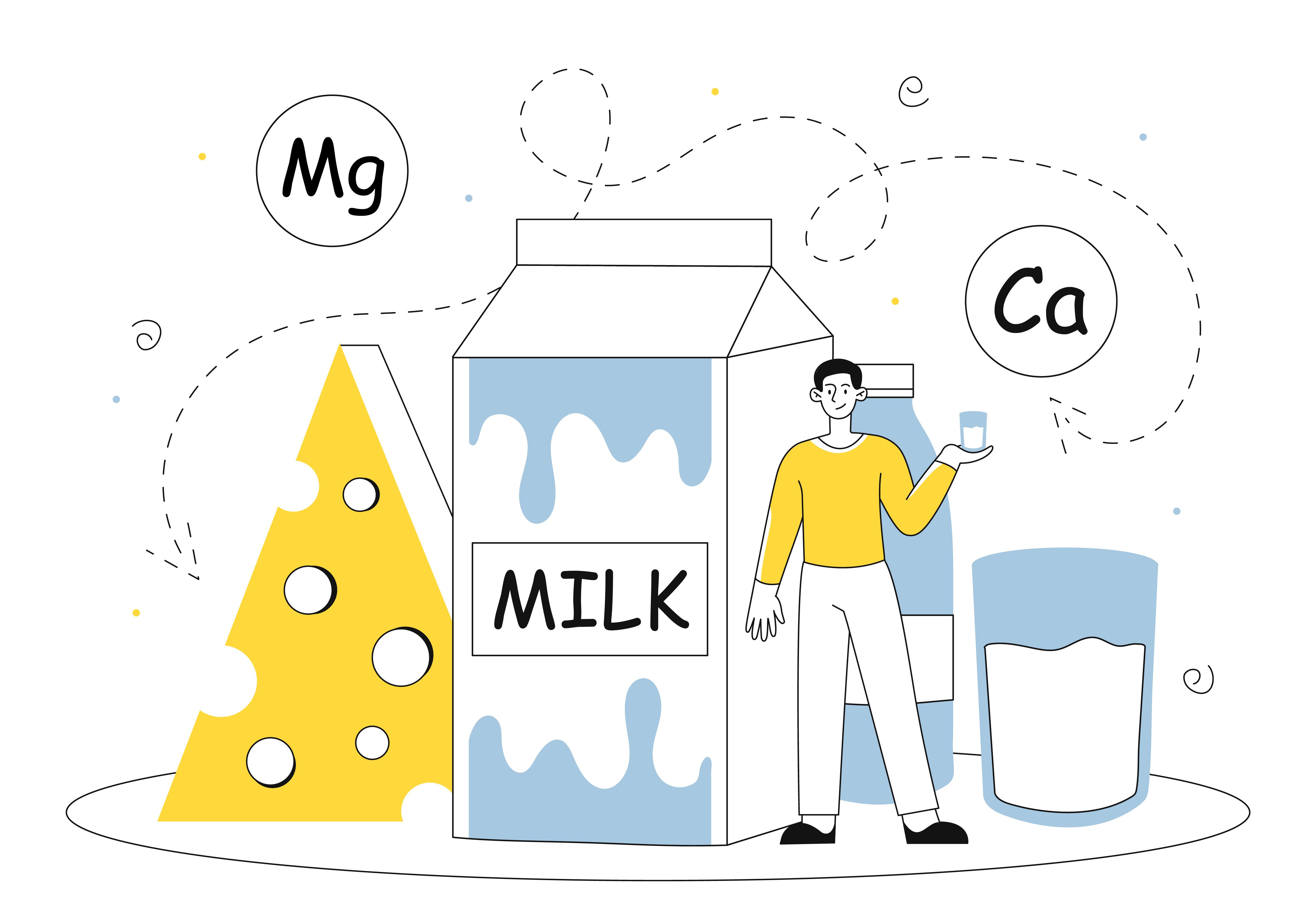
Calcium helps regulate fat breakdown
Calcium is known for its role in bone health, but it also plays an important part in fat metabolism. Studies, including randomized controlled trials and meta analysis of randomized studies, show that calcium influences how the body manages fat. Getting enough calcium helps the body break down stored fat and prevents new fat cells from forming. This process supports healthy body composition and weight management.
Dairy sources like milk improve fat metabolism
Milk is a convenient source of calcium, providing around 300mg per cup. Including milk and dairy products in your diet can improve fat metabolism throughout the day. Dairy intake has been linked to improved fat loss in energy restricted diets. Calcium from milk also interacts with other nutrients in dairy, like fatty acids and conjugated linoleic acid, to support fat breakdown.
Daily calcium intake goals for fat loss
To support fat metabolism and weight management, aim for 1,000 to 1,200mg of calcium daily. This can come from three servings of milk or dairy products like yogurt and cheese. Spacing these servings across meals helps maintain steady fat metabolism. For those who are lactose intolerant, fortified plant-based options like soy milk or almond milk can also contribute to calcium intake, though the absorption might be different compared to cow’s milk.
By including milk in your diet, you give your body the tools it needs to break down fat more effectively and avoid excess fat storage, supporting both weight loss and a healthy body composition.
Read More
Book Now to Experience
S6 Body Sculpting Treatment
1 Minute Self-Registration
Date should not be before minimal date

Milk Helps Control Appetite

Milk protein supports appetite control
Milk is a natural source of high-quality protein, which helps you feel satisfied between meals. This makes it a smart choice for weight management. The combination of casein and whey proteins in milk breaks down slowly in the body, providing a steady flow of amino acids. This process helps you feel full for longer and reduces the urge to snack between meals.
Slow-digesting compounds in milk increase satiety
Milk contains slow-digesting compounds that create a lasting feeling of fullness. Casein takes about 4 to 7 hours to digest, while whey works more quickly but still helps with satiety. Milk fat and lactose also digest over several hours, helping stabilize blood sugar levels and energy intake. The gradual digestion of these compounds creates a layered effect, so you stay full and satisfied for longer after drinking milk.
Importance of milk in an energy-restricted diet
Including milk in an energy-restricted diet can help manage hunger, especially when trying to lose weight. Protein requires more energy to digest compared to carbohydrates or fats, which helps boost metabolism. The protein in milk, combined with its slow digestion, supports fat loss without compromising body weight or lean muscle.
Choosing low fat milk, skim milk, or other low fat dairy products keeps calories in check while still providing essential nutrients. For those preferring plant-based options, fortified soy milk and almond milk can offer similar benefits, though the protein content may vary.
By including milk in your meals or as a snack, you can reduce the chances of overeating and stay on track with your weight loss goals.

Milk Provides Essential Nutrients Without Extra Calories
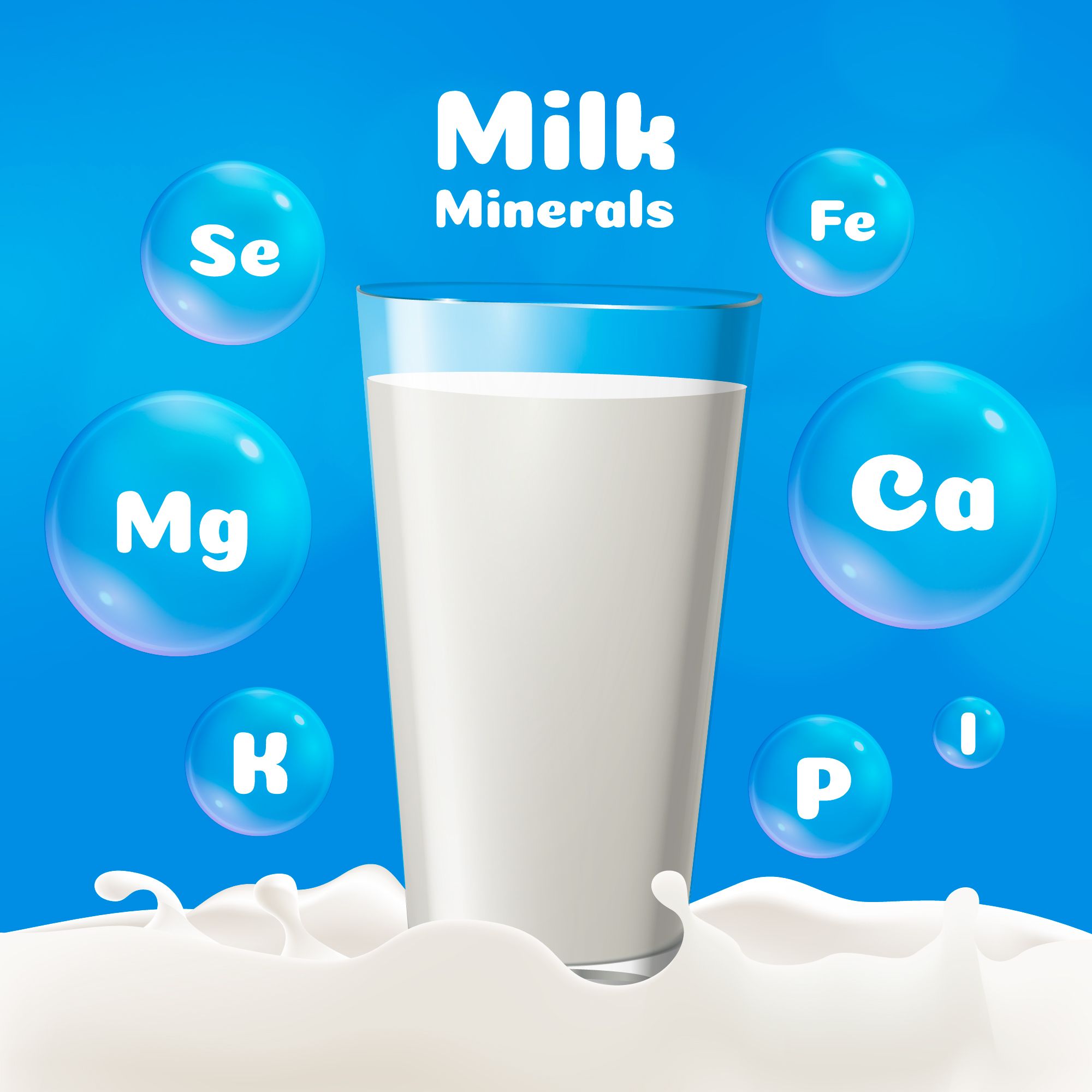
Nutrients in milk support a healthy diet
Milk is packed with essential nutrients that help maintain overall health, especially when you’re cutting calories to lose weight. Each cup of milk gives you around 8 grams of high-quality protein, 30% of your daily calcium needs, and 25% of your daily vitamin D requirement. It also provides B vitamins that help with energy metabolism, keeping your body running smoothly.
Low calorie count supports weight management
At just 80 to 90 calories per cup, milk gives you a lot of nutrition without adding too many calories to your diet. This makes it a great option for people following a calorie restricted diet or an energy restricted plan for fat loss. Choosing low fat milk, skim milk, or fat free milk helps reduce dietary fat intake while still providing the important nutrients your body needs.
Milk is an efficient choice compared to other drinks
Many sugar sweetened beverages or fruit juices add calories without much nutritional benefit. Milk, on the other hand, gives you a wide range of nutrients that support weight loss and overall health. Whether you choose cow’s milk, fortified soy milk, or almond milk, you’re adding valuable nutrients that help maintain a healthy weight and body composition.
Including milk and dairy products in your meals is a simple way to meet your body’s nutritional needs while keeping calories low, making it an ideal choice for anyone trying to lose weight.
Book Now to Experience
S6 Body Sculpting Treatment
1 Minute Self-Registration
Date should not be before minimal date

Milk Supports Post-Workout Recovery
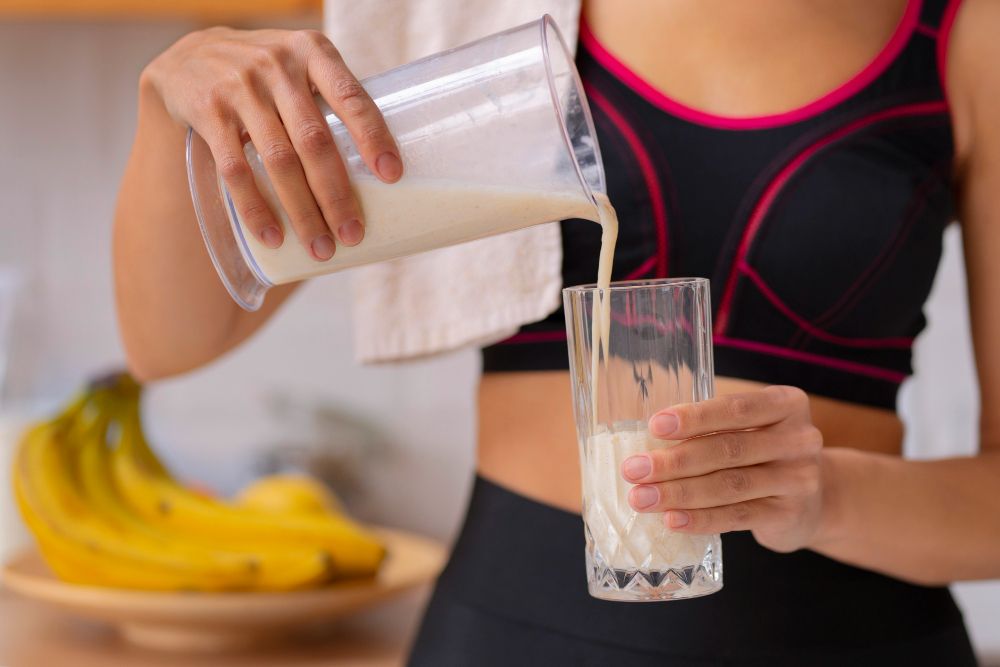
Milk helps repair muscles after exercise
After a workout, your body needs protein to repair muscles and support recovery. Milk provides high-quality protein, including all essential amino acids, which helps muscles rebuild and recover. The combination of casein and whey in milk delivers both quick and slow protein digestion, helping your body absorb nutrients effectively.
Milk restores energy and electrolytes naturally
Exercise depletes your body’s energy stores and electrolytes, which need to be replaced for proper recovery. Milk contains natural sugars that help replenish glycogen, giving your body quick energy after workouts. It also provides key electrolytes like potassium, calcium, sodium, and magnesium, which help restore fluid balance and support muscle function.
Milk is an effective post-exercise drink
Studies, including randomized controlled trials, have shown that milk can help with muscle growth, body composition, and recovery after intense exercise. Drinking 8 to 16 ounces of milk within 30 minutes after working out helps deliver protein, natural sugars, and electrolytes when your body needs them most.
If you prefer non-dairy options, fortified soy milk and other plant-based alternatives can provide some of these benefits, though they may not have the same balance of protein and electrolytes as cow’s milk.
Including milk as part of your post-exercise routine supports recovery, maintains lean muscle, and helps you get back to your workouts feeling stronger.

Milk Hydrates While Supporting Weight Management

Milk helps you stay hydrated
Staying hydrated is important for weight loss and overall health. Milk is about 90% water, making it an effective hydration source while providing additional nutrients like calcium, protein, and electrolytes. Unlike sugar sweetened beverages or fruit juice, milk offers more than just hydration—it supports your body’s nutritional needs at the same time.
Hydration helps manage hunger
When you stay hydrated, it’s easier to manage hunger and avoid mistaking thirst for cravings. Drinking milk can help fill you up and keep you from reaching for extra snacks. Studies show that milk and dairy products can help with weight management by supporting hydration and controlling energy intake.
Milk is a better hydration choice than some alternatives
Many drinks like fruit juice and sugar sweetened beverages add unnecessary calories without helping your body. Milk gives you hydration and essential nutrients like protein, calcium, and vitamin D, making it a more efficient choice for supporting weight loss. Whether you choose low fat milk, fat free milk, skim milk, or even fortified soy milk, you’re adding hydration and key nutrients without too many extra calories.
Adding milk to your daily hydration plan can help you stay full longer, support your body’s needs, and avoid excess calorie intake from less healthy drinks.
Book Now to Experience
S6 Body Sculpting Treatment
1 Minute Self-Registration
Date should not be before minimal date

Milk at Night Supports Muscle and Fat Loss
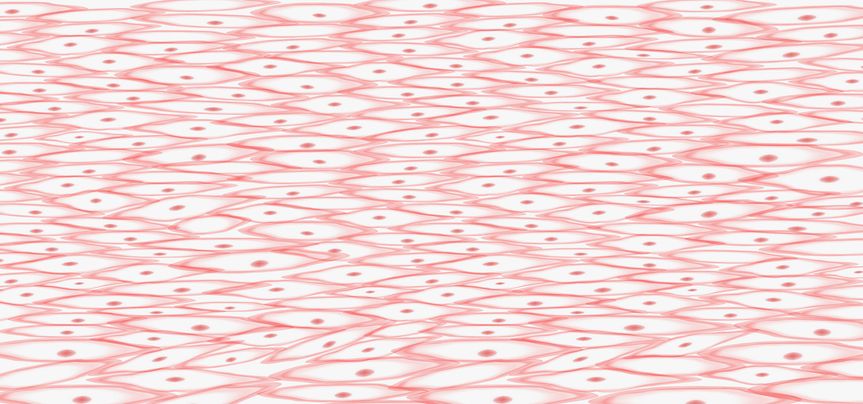
Drinking milk before bed supports overnight recovery
Your body repairs muscle and burns fat while you sleep. Milk’s slow-digesting casein protein delivers a steady flow of amino acids throughout the night, helping preserve muscle mass and support fat loss. Research shows that including milk in a healthy weight loss plan can support body composition and lean muscle, especially when combined with an energy restricted diet.
Milk promotes better sleep
Milk contains tryptophan, an amino acid that helps with sleep. This can improve rest quality, which is important for weight management and fat loss. Better sleep supports healthy hormone function, helping regulate appetite and metabolism the next day.
Ideal timing for nighttime milk intake
Drinking 8 ounces of milk about 30 minutes before bed can help your body recover overnight and maintain lean muscle. If you’re lactose intolerant, fortified soy milk can be a good alternative, though it may have a different nutrient profile.
Including milk as part of a nighttime routine helps your body work on fat loss and muscle repair while you sleep, supporting a healthy body composition and weight management goals.

Milk is an Affordable, Nutrient-Rich Choice for Weight Loss

Milk provides essential nutrients at a low cost
Milk is one of the most affordable sources of high-quality protein, calcium, and essential vitamins like B12 and vitamin D. Each cup delivers about 8 grams of protein, around 30% of your daily calcium needs, and electrolytes like potassium and magnesium—all in a single, low-cost serving.
Milk replaces the need for costly supplements
Instead of buying separate supplements for protein, calcium, or electrolytes, milk provides these nutrients naturally. This makes milk a practical and budget-friendly option for people managing their weight and looking for a complete source of nutrition without extra costs.
Budget-conscious choices for different diets
Whether you prefer cow’s milk, low fat milk, skim milk, or fortified soy milk, there’s an option to suit your taste and dietary needs. Each offers a balance of nutrients that support weight management and body composition without the high cost of supplements or specialty products.
Adding milk to your daily meals helps you meet your nutritional needs, support fat loss, and save money—making it a smart and simple choice for a healthy diet.
Book Now to Experience
S6 Body Sculpting Treatment
1 Minute Self-Registration
Date should not be before minimal date

Milk is a Versatile Ingredient for Healthy Recipes
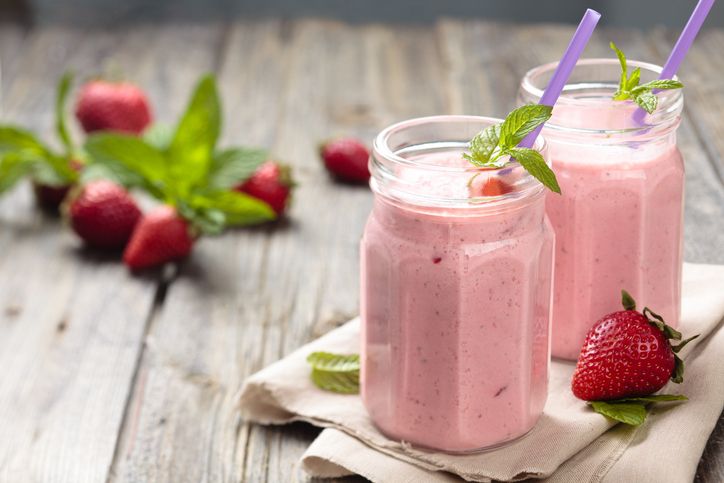
Milk adds nutrition to meals and snacks
Milk is easy to use in a variety of recipes, making it a practical choice for people trying to lose weight. It blends into smoothies, oatmeal, soups, and sauces, helping you create satisfying, nutrient-packed meals that fit your calorie goals.
Milk-based recipes for weight management
You can make a post-workout smoothie by blending a cup of milk with frozen berries and protein powder for a nutrient-rich drink. A splash of milk in coffee turns it into a creamy, low-calorie latte. For breakfast, overnight oats with milk offer a mix of protein, fiber, and carbs that keeps you full. Blending milk with frozen bananas makes a simple, guilt-free “nice cream” that satisfies cravings without extra sugar.
Including milk in your meals helps you stay creative in the kitchen while supporting your weight loss goals with balanced, filling options.

How Dairy Fat Affects Weight Management

Fat content in milk and its impact on weight
Dairy fat often gets a bad reputation, but research shows that moderate dairy fat intake doesn’t necessarily lead to weight gain. Studies, including randomized controlled clinical trials and meta analysis of randomized research, suggest that dairy fat, when part of a healthy diet, does not negatively impact body weight, body fat, or body composition.
Full cream milk vs. low fat milk
Full cream milk has a higher fat content, but it also provides beneficial compounds like conjugated linoleic acid and fatty acids, which may support fat metabolism. Low fat milk and skim milk, on the other hand, help lower calorie and saturated fat intake, making them popular choices for people aiming for fat loss. Choosing between full fat and reduced fat dairy products depends on your overall dietary goals, calorie needs, and taste preferences.
Dairy fat in a healthy weight loss plan
Whether you choose whole milk, reduced fat, or skim milk, dairy products can fit into an energy restricted diet without causing weight gain. Milk intake can support lean muscle, hydration, and essential nutrient intake—all important factors for weight management.

How S6 Body Sculpting Treatment Can Enhance Your Weight Loss Journey
Milk is a helpful part of a healthy weight loss diet, supporting muscle maintenance, fat loss, and overall body composition. But for many people, stubborn fat in areas like the belly, thighs, and arms can be tough to reduce—even with good nutrition and regular milk intake. That’s where the S6 Body Sculpting Treatment can help.
This non-invasive, non-surgical treatment works alongside your diet by targeting specific body areas that store excess fat. While drinking milk helps regulate fat metabolism and supports muscle mass, S6 Body Sculpting focuses on reducing localized fat that may not respond to diet alone. Together, they create a stronger path toward fat loss and a healthier body shape.
The S6 Body Sculpting Treatment uses a low-energy bio-laser that penetrates the subcutaneous fat layers in problem areas. This laser energy helps break down fat cells by releasing fatty acids, which your body then removes through natural lymphatic drainage. At the same time, a vacuum suction massage boosts circulation and speeds up metabolism in the treated areas. Unlike surgery, this approach does not involve injections, cutting, or medication, so there’s no long recovery time, and most people can return to daily activities right after each session.
Advantages of the S6 Body Sculpting Treatment:
• Targets stubborn fat in the belly, waist, arms, thighs, calves, buttocks, and back
• Supports fat loss in areas that are hard to slim down through diet alone
• Stimulates collagen production for skin tightening while reducing fat
• Non-invasive and safe, with no surgery or downtime required
• Suitable for most people, including those with busy schedules and limited time for exercise
• Can enhance the fat-burning effects of a healthy diet rich in milk and other dairy products
If you’re following a healthy diet, including milk for its protein and calcium benefits, and want extra help with stubborn fat areas, the S6 Body Sculpting Treatment can make a real difference in your results.
Book your S6 Body Sculpting Treatment today and give your body the boost it needs to reach your weight loss goals.
New Beauty's S6 Body Sculpting TreatmentBook Now to Experience
S6 Body Sculpting Treatment
1 Minute Self-Registration
Date should not be before minimal date
FAQ
Is milk good for weight loss or does it cause weight gain?
Milk is good for weight loss when consumed as part of a balanced, calorie-controlled diet. Studies, including analysis of randomized controlled trials, show that dairy consumption does not cause weight gain and may actually support fat loss, body composition improvements, and better weight management. Choosing low fat milk, skim milk, or fat free milk helps reduce energy intake while providing high-quality protein, calcium, and other essential nutrients.
Can I drink milk every day if I’m trying to lose weight?
Yes, you can include milk daily when trying to lose weight. Milk is a versatile option in a calorie restricted diet, offering a balance of protein, calcium, and other nutrients that support lean muscle and fat metabolism. It’s important to choose the right type of milk based on your needs—skim milk or low fat milk can be better choices for weight loss due to their lower saturated fat content.
Does milk help with body composition changes over time?
Yes, regular milk intake has been shown to support body composition goals over time. Dairy and dietary supplements from milk sources provide protein that helps maintain lean muscle while reducing body fat. Studies show that consistent milk consumption as part of an energy restricted diet supports fat loss without contributing to long-term weight gain.
Can I drink milk if I am lactose intolerant and still want to lose weight?
If you are lactose intolerant, you can choose lactose-free milk options or plant-based alternatives like fortified soy milk, almond milk, oat milk, or rice milk. These options can still support weight loss goals, but check labels to ensure they are fortified with calcium and vitamin D. Fortified soy milk is often the closest match to cow’s milk in terms of protein content.
How does S6 Body Sculpting Treatment help with fat loss if I am already following a healthy diet?
Even with a healthy diet and good habits like drinking milk for weight loss benefits, some areas of the body—like the belly, thighs, or arms—can hold on to stubborn fat. The S6 Body Sculpting Treatment helps reduce this fat by using low-energy bio-laser technology that targets specific areas and breaks down fat cells for removal through lymphatic drainage. It complements your diet by providing targeted fat reduction that may not be possible through milk intake and dietary changes alone.
Recommended Articles
COPYRIGHT© NEW BEAUTY MANAGEMENT LIMITED 2026. ALL RIGHT RESERVED.




